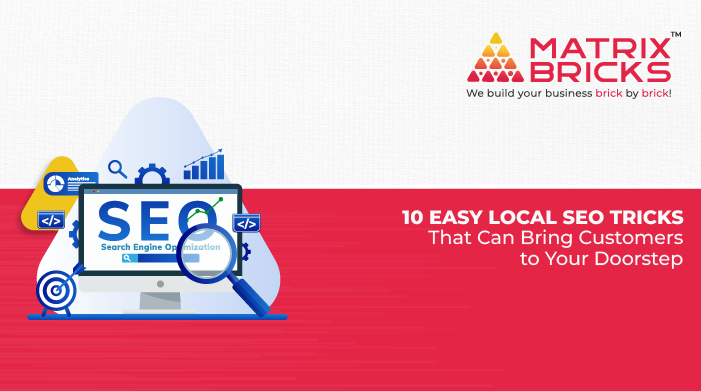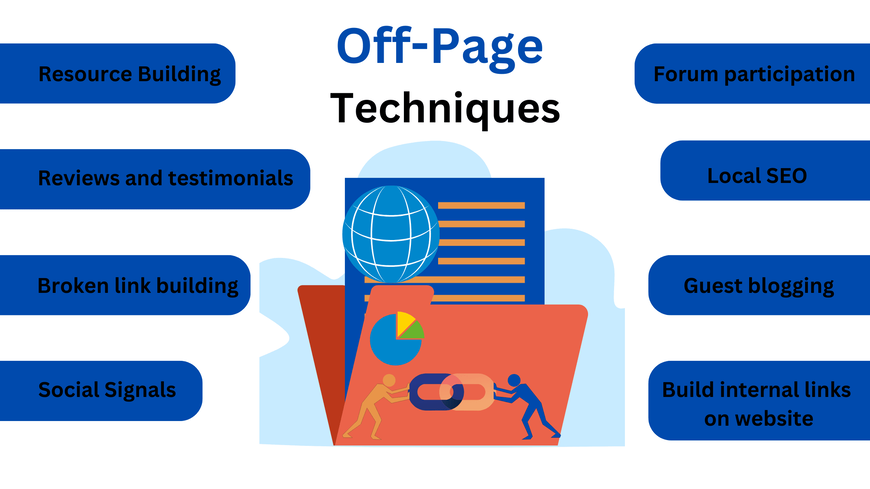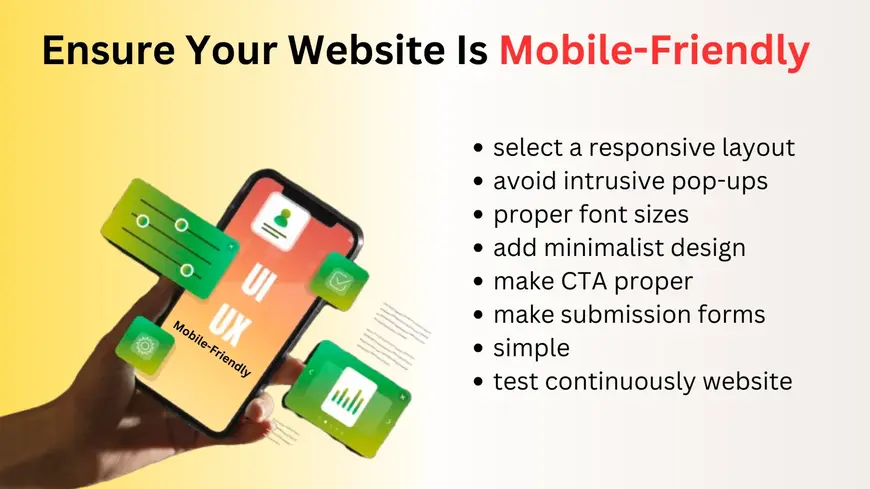
10 Easy Local SEO Tricks That Can Bring Customers to Your Doorstep
In this digital age, it is crucial that local businesses come up in the search results of customers who want to get their services from nearby. Whether you run a cosy café, a boutique store, or a professional service, optimising your online presence for local searches can make all the difference.
The good news? You don’t need to be an SEO expert to make an impact. With just a few simple strategies, you can improve your visibility and attract local customers. Let’s dive into ten easy-to-implement local SEO tricks that will help bring customers straight to your doorstep.

1. Claim and Optimise Your Google Business Profile (GBP)
Your Google Business Profile (formerly Google My Business) is one of the most powerful tools for local SEO. If you haven’t claimed yours yet, do it now! Once claimed, optimise it by:
- Adding accurate business information (name, address, phone number, and website)
- Choosing the correct business categories
- Uploading high-quality photos
- Encouraging customers to leave reviews
Pro Tip: Regularly update your profile with fresh posts, offers, and announcements to keep it engaging!
Why This Matters
A fully optimised GBP increases your chances of appearing in Google’s Local Pack—the top three local listings displayed in search results. This can significantly boost your online visibility and drive more foot traffic to your business.

2. Use Local Keywords Strategically
Keywords are the backbone of SEO, but for local searches, specificity is key. Instead of generic terms like “best coffee shop,” opt for “best coffee shop in [your city].”
- Include these keywords naturally in your website content, meta descriptions, and blog posts.
- Use location-based keywords in headings and image alt texts.
- Don’t forget long-tail keywords like “where to buy organic coffee in [your city].”
???? Pro Tip: Google’s autocomplete feature is a goldmine for discovering local search terms!
How to Find the Right Keywords
Use free tools to discover high-ranking local keywords. Pay attention to search intent—are users looking for information, directions, or reviews? Optimise accordingly.

3. Get Local Backlinks
Search engines see backlinks as votes of confidence. But not just any backlink will do! Focus on acquiring links from local sources like:
- Local business directories
- Chamber of Commerce websites
- Collaborations with local influencers or bloggers
- Sponsorships of community events
Pro Tip: Reach out to local news sites and offer expert insights in your niche—they might feature you!
The Power of Local Backlinks
High-quality local backlinks help search engines understand that your business is relevant to a specific area. This can improve your rankings for location-based searches.

4. Suggest and Monitor Reviews Online
Local search takes into account customer reviews, thereby establishing credibility. Suggest happy customers to place reviews on Google, Facebook, etc.
- Respond to all reviews-both good and bad-professionally
- Politely ask satisfied customers to share their experiences.
- Avoid fake reviews; they can do more harm than good.
Pro Tip: Offer a small incentive like a discount or a freebie for customers who leave honest feedback!
Responding to Reviews the Right Way
When responding to reviews, always be polite and professional. If a customer leaves a negative review, acknowledge their concerns and offer a resolution. This demonstrates excellent customer service and encourages potential customers to trust your business.
5. Create Location-Specific Content
Content marketing isn’t just for big brands! Creating content specific to your local area helps attract nearby customers.
- Write blog posts about local events or attractions.
- Create guides like “Best Date Night Spots in [Your City].”
- Feature customer success stories from your community.
Pro Tip: Include internal links to relevant pages on your website to boost SEO further!
Content Ideas That Work
Consider writing about community events, local trends, or seasonal activities. People love reading about what’s happening in their area, and this can help position your business as a local authority.

6. Ensure Your Website Is Mobile-Friendly
Most local searches happen on mobile devices, so your website must be mobile-friendly.
Use a responsive design
Make sure your page loads quickly enough (Google’s PageSpeed Insights can check that for you). Make it easy for users to contact you with clickable phone numbers and maps.
Pro Tip: Keep forms short and simple—no one likes typing too much on a mobile screen!
Why Mobile Optimisation Matters
Google prioritises mobile-friendly websites in search results. If your site isn’t optimised for mobile, you risk losing potential customers.
7. Use Local Structured Data Markup
Structured data (or schema markup) helps search engines understand your business better. This can enhance your search results with rich snippets showing reviews, opening hours, and other details. Mark up important information like your address, phone number, and business type.
Pro Tip: If coding isn’t your thing, ask your web developer to add schema markup for you!
8. Get Listed in Online Directories
Adding your company to internet directories increases exposure and aids in local rankings.
- Submit your business to reputable directories and industry-specific directories.
- Make sure that all of your listings have the same NAP (Name, Address, Phone Number).
Pro Tip: Use a tool like Moz Local or BrightLocal to manage your listings efficiently!
9. Leverage Social Media for Local Engagement
Local search rankings may also be impacted by your social media presence. Engage with your community by:
- Sharing local events and collaborations.
- Using location-based hashtags.
- Encouraging user-generated content (e.g., customers tagging your business in their posts).
Pro Tip: Facebook allows you to set up a location page for each branch of your business!
10. Tack and Refine Your Local SEO Activities
SEO is a continuous process, not a one-time project. Observe your performance level and update your strategy. Use Google Analytics to track where your website traffic comes from. Monitor rankings with tools like Google Search Console. Stay updated with Google’s latest algorithm changes.
Pro Tip: Set up Google Alerts for your business name to stay on top of online mentions!
Final Thoughts
Implementing local SEO doesn’t have to be overwhelming. By taking small, consistent steps, you can improve your search visibility and attract more customers to your business. If you’re looking for expert guidance on optimising your local SEO strategy, our team is here to assist you!
Get in touch with us at Matrix Bricks, and let’s work together to bring more customers to your doorstep.





